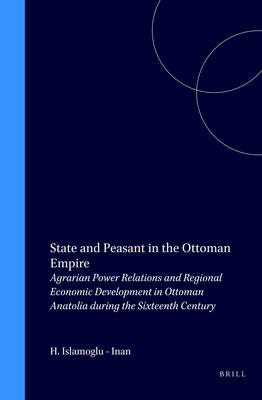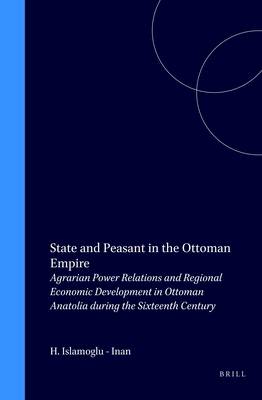
- Afhalen na 1 uur in een winkel met voorraad
- Gratis thuislevering in België vanaf € 30
- Ruim aanbod met 7 miljoen producten
- Afhalen na 1 uur in een winkel met voorraad
- Gratis thuislevering in België vanaf € 30
- Ruim aanbod met 7 miljoen producten
Zoeken
State and Peasant in the Ottoman Empire
Agrarian Power Relations and Regional Economic Development in Ottoman Anatolia During the Sixteenth Century
Huri Islamoglu - Inan
€ 332,95
+ 665 punten
Omschrijving
State and Peasant in the Ottoman Empire studies the dynamics of Ottoman peasant economy in the sixteenth century. First, it shows that contrary to the conventional wisdom about the 'stationariness'of the Asian agrarian economies, Ottoman peasant economy witnessed substantial growth in response to population increase, urban commercial expansion and to increased taxation demands. Second, the book argues that economic development did not take place independently of political structures, of the state. This meant that in the light of the fiscal and legitimation concerns of the Ottoman state and contrary to the assumptions of the models of economic development, changes in population and in commercial demand did not result in the disruption of the integrity of the small peasant holding as the primary unit of production. The book develops these arguments in the context of a detailed empirical study of the economic trends, of the state rules or institutions that embodied the relations of revenue extraction, and of exchange in Ottoman Anatolia.
Specificaties
Betrokkenen
- Auteur(s):
- Uitgeverij:
Inhoud
- Aantal bladzijden:
- 312
- Taal:
- Engels
- Reeks:
- Reeksnummer:
- nr. 1
Eigenschappen
- Productcode (EAN):
- 9789004100282
- Verschijningsdatum:
- 1/07/1994
- Uitvoering:
- Hardcover
- Formaat:
- Genaaid
- Afmetingen:
- 163 mm x 247 mm
- Gewicht:
- 698 g

Alleen bij Standaard Boekhandel
+ 665 punten op je klantenkaart van Standaard Boekhandel
Beoordelingen
We publiceren alleen reviews die voldoen aan de voorwaarden voor reviews. Bekijk onze voorwaarden voor reviews.











